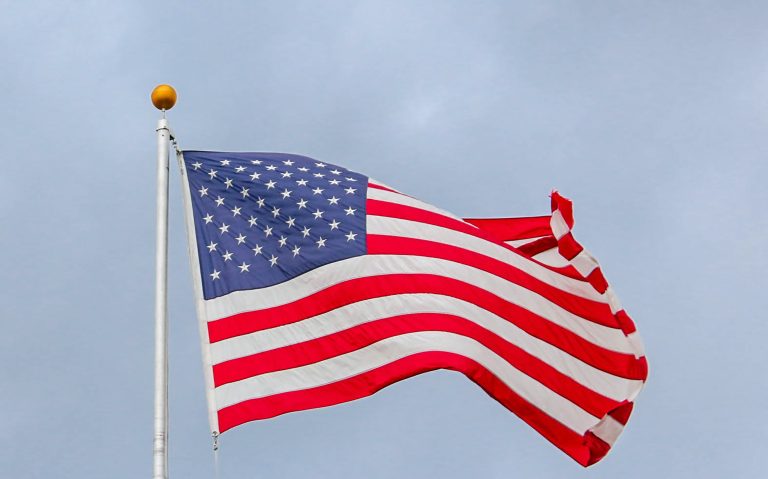
Benjamin Netanyahu continues his fight against “radical liberals” and United States “soft power”
We have previously written about the mass spring protests in Israel against judicial reform, which de facto became a challenge by Israeli liberals to the conservative policies of the country’s current Prime Minister Benjamin Netanyahu. Almost immediately, these events in Israel raised the question of U.S. involvement in the attempted change of power in the country, shattering the long-standing myth of U.S.-Israeli harmony that did not correspond to reality, and showing that the liberal course of the White House administration is aimed at fighting conservative-patriotic regimes around the world without any privileges. In reality, it turned out that ideological attitudes toward building a global world are more valuable to Washington than any, even the most obvious, international interests of their country. In Netanyahu’s entourage, immediately after the rallies began, they began accusing the U.S. State Department of financing the protest activity in Israel. As it turned out, the State Department is the main sponsor of the Israeli NGO Movement for Quality Government, which organized the demonstrations against Netanyahu.
Back in early 2022, Democrats in Washington took a very negative view of the victory of the right-wing coalition led by Netanyahu in last year’s elections, and immediately afterward launched an FBI investigation into the murder of the Palestinian-American journalist Al Jazeera. More recently, the White House has expressed dissatisfaction with the change of course on the future of settlements in the West Bank, and has been vocal in its demands for a softening of judicial reform with limited powers for the Supreme Court. During the protests, he called on Netanyahu to compromise with the protesters and respect “democratic values.” At the time, this was not the first time the State Department had been at the center of a scandal involving attempts to influence the domestic Israeli agenda. In 2015, it funded a liberal NGO that worked against Netanyahu in the then-election, but that time it drew a sharp reaction from the Republican Congress. Despite these acts, the spring 2023 protests came as a shock to Netanyahu’s government, but he was able to gather strength and mobilize the conservative part of Israeli society in his support. However, this was only the beginning of a long struggle that has been de facto ongoing since as early as 2015.

A new wave of protests began after July 24, 2023, when the Knesset approved one of the judicial reform bills. Sixty-four MPs representing the ruling coalition voted in favor of the bill, while 56 opposition MPs boycotted the vote. Opponents of the reform went on spontaneous protests immediately after the vote, and tens of thousands protested in Tel Aviv, with some protesters blocking traffic on Highway 551 north of the city. Police used water cannons and an “unknown” vehicle struck the protesters, leaving four people injured and hospitalized in what clearly looked like a deliberate provocation. According to the protesters’ version, on the night of July 25, an 18-year-old was brutally detained by police. But according to the police version, he tried to put plastic objects thrown at the police under the wheels of a vehicle with a fire hose in order to impede its work. Nevertheless, the detainee’s mother reported the beating of her son to the police. On July 27, protests resumed after a lull, with thousands gathering outside government buildings in Tel Aviv. Demonstrators chanted pro-democracy slogans and carried national flags, while police set up roadblocks and barbed wire fences in the neighborhood. According to the liberal media, the police used brutal arrests against the protesters with batons, tear gas and water cannons. In reality, however, this only indicated that Netanyahu was ready for a new round of protests.
But the Prime Minister’s opponents did not stop on this, and a new wave of mass protests against the government of Benjamin Netanyahu and his judicial reforms took place in September 2023. In fact, these protests have not stopped at all since the summer, and the moment of their aggravation lasted for 37 weeks in a row. Traditionally, the Israeli opposition has held its actions on Saturdays, but most importantly, the organizers moved the demonstration to Sunday due to the holiday of Rosh Hashanah, the New Year in the Jewish calendar, which this year was celebrated from September 15 to 17. On the occasion of the holiday, at the request of the organizers, many rally participants came dressed in white, and the rally itself was held under the slogan “The Year of the Victory of Democracy”. Demonstrators marched through the center of Tel Aviv and carried a huge canvas with a reproduction of the scroll of Israel’s Declaration of Independence along the city’s main boulevard. According to the organizers, this was done in protest against the ruling coalition’s attempts to undermine the democratic foundations of statehood laid down in this document. At the end of the march and the rally that followed, the organizing committee called on everyone to go to Tel Aviv’s Ben-Gurion International Airport, from where Netanyahu’s plane is scheduled to depart in the coming hours on its way to the United States. According to the activists, at the airport they wanted to once again protest the prime minister’s attempts to “establish a dictatorship in the country.” And there was no doubt that it was Netanyahu’s country of destination that continued to be the main source of danger for him, as the months-long events surrounding Israel in Washington confirmed.
Back in April, when the scandal involving the leak of Pentagon and other secret American documents to the media broke, it was revealed that in Israel, American intelligence was interested in the role of the Mossad in anti-government protests against Netanyahu’s judicial reforms and how it could protect the country from interference in Israeli politics by the U.S. State Department. U.S. intelligence has since blamed the Mossad for the drone attack on military installations in Iran. According to their data, this was far from the first covert military operation of this kind, and earlier attempts to use drones to attack Iran were made in 2021 and early 2022. In the U.S., they were linked to a change in Israeli policy during the premiership of Naftali Bennett, who wanted to respond to terrorist attacks on Israeli territory in this way, but the publications clearly carried an anti-Israeli note of militarism and cast a shadow on Netanyahu, who has long been portrayed as a far-right aggressor. This tone of Israel’s positioning is very popular in the U.S. today, and it is the electorate of the Democratic Party that perceives the country particularly negatively. And it is not only a partisan divide, but also a generational divide. The old generation of Americans habitually supports Israel, but among the young people 56% already have a negative attitude towards Israel. And the change in Washington’s policy is due to the fact that it is very important for Biden to ride this process from the electoral point of view.

Against the backdrop of the cooling between Washington and Tel Aviv, China is taking advantage of this, increasing its activity in the Middle East by negotiating with Iran and shifting Saudi Arabia and Iraq to trading oil in yuan. Mahmoud Abbas recently visited Beijing, and the Palestinians are calling on China to engage in negotiations with Israel. Israel, for its part, is trying to resume cooperation with the Persian Gulf oil monarchies through China. Under Trump, Israel was doing this with U.S. support, but now the Americans are forced to reduce their presence in the Middle East, focusing on confrontation with Russia and China. The Biden administration’s attitude toward Israel leaves much to be desired, and in addition to sponsoring attempts to overthrow Netanyahu, the Americans are increasing financial pressure on Israel, and amid protests, 5 billion dollars was withdrawn from Israeli banks, and American banks began to downgrade the country’s credit rating. And now Israel is trying to increasingly focus on China, so Netanyahu is defiantly not only meeting with Biden, but also going to Beijing. Israel has already started to transfer some of its assets from the dollar to the yuan. And it will be very symbolic if it is Israel that leads the process of de-dollarization of the Middle East, while China will have a chance to play the role of peacemaker not only with Iran, but also in the Palestinian-Israeli conflict.
However, there are also those forces in Israel that in the name of their liberal political beliefs seek to resist objective changes against common sense. Thus, the arrival of the country’s president, Jitzchak Herzog, in Washington has once again placed Israel at the epicenter of the culture wars in the United States. He is trying to restore relations with the Biden administration, acting as an alternative to Netanyahu, with whom the Americans have already entered into direct confrontation. Herzog addressed Congress, where the left wing of the Democratic Party, despite his image as a moderate socialist, boycotted his address. The left-wing Democrats have a very negative view of Israel, calling it an “apartheid country” and demanding a BDS policy toward it, which stands for “boycott, sanctions and divestment.” Republicans are still lobbyists for Israel and actively criticize Biden for cooling relations with Netanyahu. But a majority of Democratic voters favored the Palestinians as their “friends” for the first time in history. And Israel seems to realize this, which is why it is cooperating more actively with China, bypassing the U.S. and seeking other strategic and tactical allies. In this light, American support for the protests against Netanyahu is just a standard method for Washington’s foreign policy based on constantly pressuring other countries in this way. Consequently, we will long hear about the struggle between the conservative government in Tel Aviv and the Open Society Foundations, which, however, is behind the events in Israel quite objectively.


Average Rating